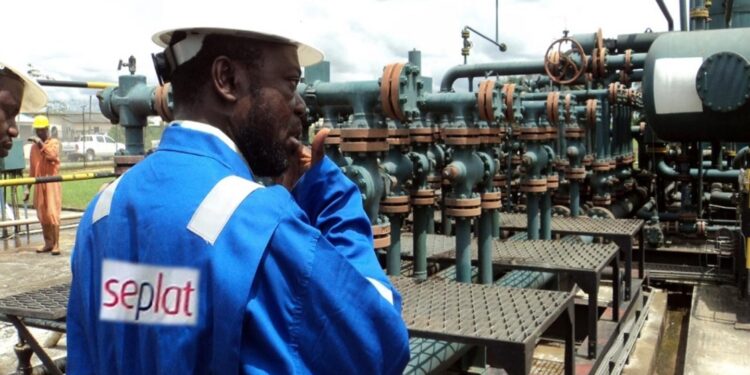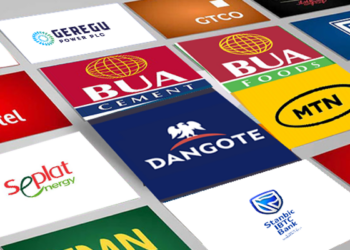The year 2023 was fantastic for Seplat Energy, with the share price gaining 110% to reach N2,310.
The share price rally has continued in 2024. In the first month of the year, the share price gained 33.10%, closing at N3,074.60.
Nairametrics had earlier reported a growing sense of optimism regarding the sustainability of Seplat’s share price surge, projecting it could reach N3,500.
On June 27, 2024, the company’s shares experienced a remarkable surge, breaking through the N3,500 mark and reaching a new 52-week high of N3,790.90.
However, by July 11, 2024, the share price had retracted to N3,480, marking an 8.3% decline from its recent high.
Despite this drop, the company remains a formidable player on the Nigerian Stock Exchange, holding its position as the eighth most valuable stock with a market capitalization of NGN 2.05 trillion, representing about 3.64% of the total equity market.
From the foregoing, should investors buy, hold or sell this well-known oil and gas stock?
Financial Performance
Seplat Energy has shown strong financial performance, with an average annual growth rate of 12% over the past five years.
In 2023, the company achieved an impressive 72% year-over-year surge in sales, followed by a further 77% YoY growth in Q1 2024.
A significant portion (88%) of Seplat Energy’s revenue comes from crude oil sales, indicating a heavy reliance on the volatile oil market.
This dependency means that any significant drop in oil prices and the inherent volatility of the business could negatively impact Seplat’s revenue and profitability.
For instance, in 2023, the average realized oil price declined by 18% to $83.39/bbl from $101.67/bbl in 2022.
In Q1 2024, despite the 4.7% growth in average realized crude oil price to $86.17/bbl from $82.32/bbl in Q1 2023, crude oil revenue declined 49.4% to $150.8 million from $297.9 million in Q1 2023, attributed to the timing of lifting, exacerbated by the overlift reported in Q1 2023.
On the other hand, in 2023, gas sales account for only 12% of revenue, showing limited diversification.
Gas revenue fell by 12.4% to $29.0 million in Q1 2024, compared to $33.1 million in Q1 2023. The decline in gas revenue was attributed to lower gas volumes produced during the period, due principally to delays in new gas wells coming on stream; these are now expected to be operational in Q2 2024.
This is reassuring, especially with signs of potential change in this area. Commenting on the Q1 2024 unaudited financial results, Roger Brown, Chief Executive Officer, said:
“Looking further forward, we were pleased to see more progressive actions taken by President Tinubu and the industry regulators.
In March, the President signed executive orders that will provide fiscal incentives in our gas and midstream businesses.
More recently, the Nigerian Midstream and Downstream Petroleum Regulatory Authority (NMDPRA) lifted the domestic gas price to $2.42/Mscf, supporting revenue generation and re-emphasizing the government’s commitment to developing Nigeria’s gas resources, a factor aligned with Pillar 2 in our strategy.”
Impact of Operational Costs on Profitability
Aside from price volatility and production volume dynamics impacting revenue, operational costs are another significant factor affecting profitability.
While reported currency figures show apparent growth due to favorable currency movements, constant currency adjustments reveal the true operational performance, providing a clearer picture of the company’s health and trends.
For instance, in Q1 2024, production operating expenses (opex) were $9.6 per barrel of oil equivalent (boe), up from $9.0 per boe in Q1 2023. Additionally, general and administrative expenses increased by 17.2%, amounting to $24.1 million compared to $20.5 million in the first three months of 2023.
As a result, gross profit fell by 78.5% to $42.7 million, down from $198.3 million recorded in Q1 2023 (a 29.9% decrease in Q1 2024 to N83.813 billion).
Operating profits also decreased by 21.0% to $81.9 million, compared to $103.7 million achieved in Q1 2023 (a 157% increase in Q1 2024 to N122.377 billion).
Despite the underlift gains, pre-tax profit declined by 19.49% to $69.288 million, down from $86.060 million in Q1 2023 (a 161.9% increase in Q1 2024 to N103.513 billion).
Looking Forward
Seplat believes that the business remains strong, with production firmly on track in 2024. In its FY 2023 results, the company outlined several growth opportunities for 2024.
- The first of these to start generating revenue for Seplat is Sibiri, which came on stream just a few weeks after the FDP approval was received from NUPRC.
- At Abiala (a marginal field within OML 40), the drilling programme is on track to start during Q2 2024.
- The resumption of operations on the Trans Niger Pipeline in April, approximately four months ahead of plan.
- Access to the pipeline will enable increased production from OML53 and provide the primary export route for condensate from AGPC, which remains on track for the first gas in Q3 2024.
Overall, it appears the company has set to mitigate and navigate through the production, revenue diversification and costs issues.
What should investors do?
Getting back to the original question of what course of action investors should take requires consideration of some important factors.
For income-oriented investors, looking at Seplat’s dividend policy/trend accompanied by share gain, makes buying and holding this stock compelling.
Seplat pays quarterly dividends, and in 2023, the company paid out a total dividend of $15 per share. At varying exchange rates, this amounted to N126.45 per share or N74.412 billion, representing a 91.42% payout and an 189% year-over-year increase.
In the current year, in line with its quarterly dividend policy, the board approved a Q1 2024 dividend of US 3.0 cents per share.
In 2022, Seplat Energy’s stock significantly outperformed the market with a Year-to-Date (YtD) return of 69.23%, compared to the NGX All-Share Index return of 19.98%.
In 2023, the stock continued its strong performance with a YtD gain of 110%, surpassing the NGX All-Share Index YtD gain of 45.90%.
As of the current year, Seplat has achieved a YtD gain of 51%, outpacing the broader market YtD gain of 33%. Currently, the stock offers a dividend yield of 4%, taking a total return to 54% year-to-date.
However, it is important to note that Seplat’s price-to-earnings (P/E) ratio of 59.52x is significantly higher than the industry’s average P/E ratio of 17.64.
This high P/E ratio indicates that the stock is trading at a premium compared to its peers, suggesting that the market has high expectations for Seplat’s future growth.
While this premium valuation could be justified by Seplat’s strong dividend policy and growth prospects, it also introduces a higher level of risk.
Its price to sales ratio of 1.42x affirms the market expectations for future revenue growth.
Investors need to consider whether they believe Seplat can meet these high expectations and continue to grow at a pace that justifies its current valuation.
High valuation implies that investors expect Seplat to deliver strong future growth in earnings and dividends. If Seplat fails to meet this heightened expectation; if its actual earnings growth or dividend payouts fall short of expectations, investors may react negatively, leading to a decline in the stock price.
Overall Bancorp Securities and Afrinvest, according to the NGX’s Broker stock recommendations for July 8th – 12th, 2024, both issued a “Hold” rating on SEPLAT.




















